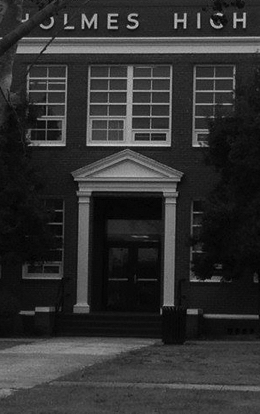Rascals case in brief
In the beginning, in 1989, more than 90 children at the Little Rascals Day Care Center in Edenton, North Carolina, accused a total of 20 adults with 429 instances of sexual abuse over a three-year period. It may have all begun with one parent’s complaint about punishment given her child.
Among the alleged perpetrators: the sheriff and mayor. But prosecutors would charge only Robin Byrum, Darlene Harris, Elizabeth “Betsy” Kelly, Robert “Bob” Kelly, Willard Scott Privott, Shelley Stone and Dawn Wilson – the Edenton 7.
Along with sodomy and beatings, allegations included a baby killed with a handgun, a child being hung upside down from a tree and being set on fire and countless other fantastic incidents involving spaceships, hot air balloons, pirate ships and trained sharks.
By the time prosecutors dropped the last charges in 1997, Little Rascals had become North Carolina’s longest and most costly criminal trial. Prosecutors kept defendants jailed in hopes at least one would turn against their supposed co-conspirators. Remarkably, none did. Another shameful record: Five defendants had to wait longer to face their accusers in court than anyone else in North Carolina history.
Between 1991 and 1997, Ofra Bikel produced three extraordinary episodes on the Little Rascals case for the PBS series “Frontline.” Although “Innocence Lost” did not deter prosecutors, it exposed their tactics and fostered nationwide skepticism and dismay.
With each passing year, the absurdity of the Little Rascals charges has become more obvious. But no admission of error has ever come from prosecutors, police, interviewers or parents. This site is devoted to the issues raised by this case.
On Facebook
Click for earlier Facebook posts archived on this site
Click to go to
Today’s random selection from the Little Rascals Day Care archives….
Click for earlier Facebook posts archived on this site
Click to go to
Today’s random selection from the Little Rascals Day Care archives….
Betsy Kelly barred from reunion (but still got T-shirt!)
 June 28, 2015
June 28, 2015
“Today in Edenton members of John A. Holmes High School’s Class of ’73 will walk across a stage in caps and gowns, receive diplomas and turn tassels on their mortar boards – 20 years late.
“Their graduation ceremony was cancelled abruptly in 1973. A decision not to renew the contract of a black band leader had caused racial unrest, and school officials feared a disruption…. Diplomas were mailed to the 142 graduates….
“One member who doesn’t plan to attend is Elizabeth Twiddy Kelly…. A condition of her ($400,000) bond prohibits her from going to her hometown.
“ ‘There are a lot of them I would love to just touch base with, but that will have to happen another year,’ Mrs. Kelly said.
“The class committee plans to send her a class T-shirt and a letter.”
– From “Class of ’73” by the Associated Press (June 12, 1993)
Seven months later Betsy Kelly pleaded no contest to charges of child sex abuse, while maintaining her innocence, and accepted a sentence of seven years in prison. She was paroled in November 1994.
City sidewalks, busy sidewalks: An upbeat dispatch from the DNC
Sept. 7, 2012
Having met with less than overwhelming interest earlier in the week in front of the bustling Charlotte Convention Center, I narrowed my focus.
Thursday I situated my “Exonerate” placard at the entrance to the peripheral and unhurried Crowne Plaza hotel, convention headquarters for the North Carolina Democratic Party, and our message was well received (except for an overly territorial security guard).
Not only did several delegates express support for the Edenton Seven, but also a dozen or so more took cards with the site address. And I was able to bend the ears of reporters from Greensboro, Rocky Mount and the Outer Banks, as well.
Yes, the delegates are mostly ordinary folks, not influential officials – I didn’t see Gov. Perdue – but I’m grateful they will take home a greater awareness of this shameful injustice, still unaddressed, in their own state.
Emissaries from Raleigh bring kneejerk resistance to exoneration

wral.com
Roy Cooper
Sept. 11, 2016
“I honestly don’t understand not only how the Attorney General’s Office felt it was necessary to fight us through a full week of hearing in this case, but how they could stand up at the end of that hearing and say they thought Johnny should stay in prison.
“That is not a minister of justice. A minister of justice should be objective enough to evaluate the evidence in a fair way and there was no way anybody could look at the evidence that came out in that hearing and say Johnny Small should be in prison.”
– Chris Mumma of the N.C. Center on Actual Innocence, quoted in “Johnny Small free after murder charge dismissed” in the Wilmington Star-News (Sept. 8)
I would’ve expected, before my apprenticeship on the exoneration watch, that district attorneys would be less willing to having their fingers pried loose from wrongful convictions than their allies in the attorney general’s office. It’s the DAs, after all, who have to ‘splain their misfeasance to the voting public.
But this often seems not to be the case, as exemplified by Assistant AG Jess Mekeel’s misplaced concern for “the stability and reliability of our justice system.”
How much of this institutional resistance to exoneration owes to a tradition of prosecutorial blood-brotherhood? And how much springs directly (if not via email) from Attorney General Roy Cooper?
If Cooper took heed of Mumma’s thoughtful plea for “more cooperation between prosecutors and defense attorneys in their efforts to achieve justice,” evidence of it has yet to surface.
![]()
Why have historians overlooked day-care mania?
 July 27, 2012
July 27, 2012
“It has always intrigued me that, in a culture that is relentlessly self-critical… the pre-school hysteria and witch-hunts of the 1980s and ’90s (have) attracted little, if any, notice among historians and social analysts.
“Which is odd: We moderns like to think that we are exempt from some of the baser instincts of human nature, but hysteria, mob rule, and spectral fears are still very much with us.
“Moreover, in this instance, the American judicial system failed systematically, blighting hundreds of lives: Many more genuinely innocent people went to prison, and for longer terms, than any Communist during the McCarthy era.”
– From “Remember McMartin” by Philip Terzian in the Weekly Standard (Nov. 11, 2011)









0 CommentsComment on Facebook